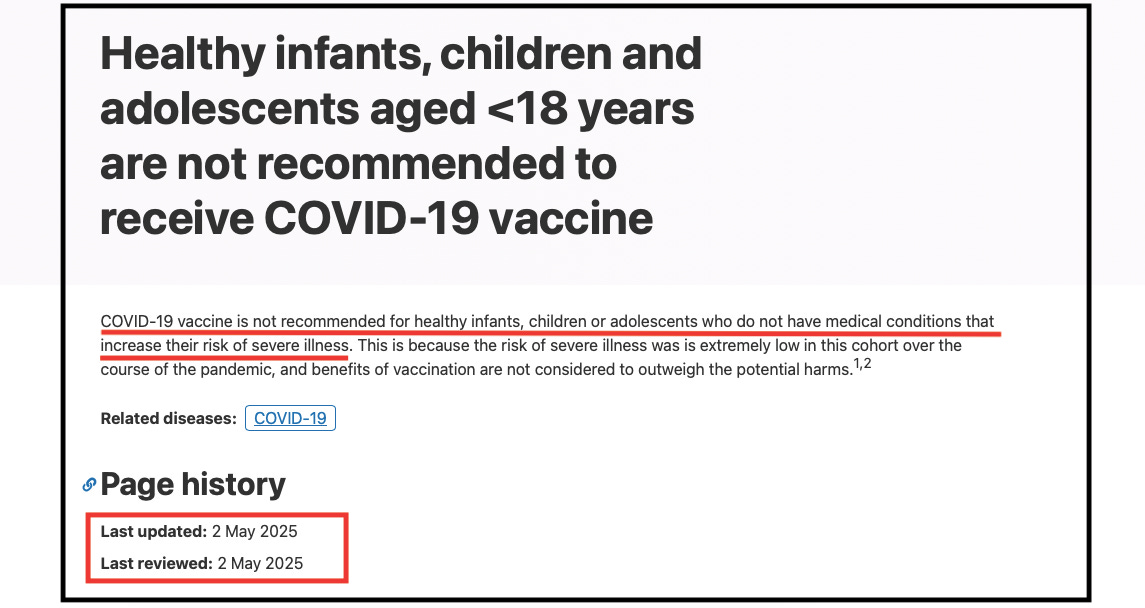Australia quietly pivots on Covid-19 vaccine policy
It didn’t come with a press conference or a media blitz. In fact, there was no announcement at all.
But sometime around 2 May 2025, the Australian Department of Health quietly removed its recommendation for Covid-19 vaccination in healthy children and adolescents under 18.
The change was tucked into an online update to the Australian Immunisation Handbook—no headline, no ministerial statement, no media campaign to inform the public.
For the first time since the rollout began, Australian health authorities now say that unless a child has underlying medical conditions, they do not need the vaccine.
Australia now joins a growing list of countries backing away from the blanket approach to vaccinating low-risk populations.



